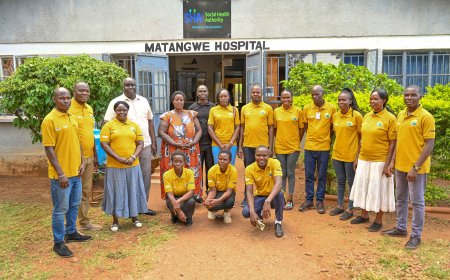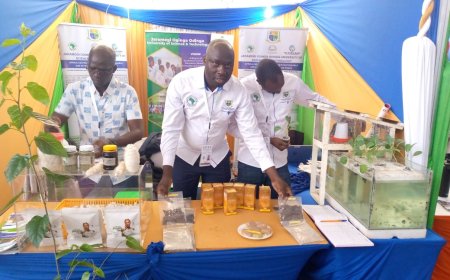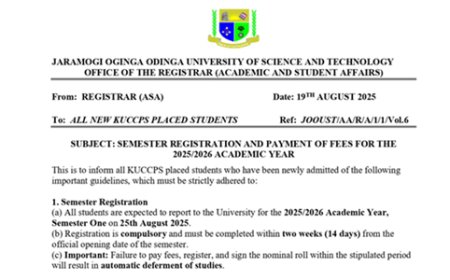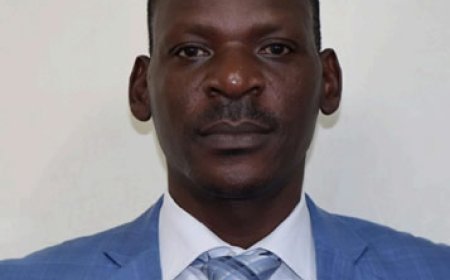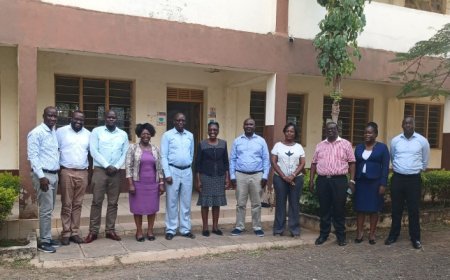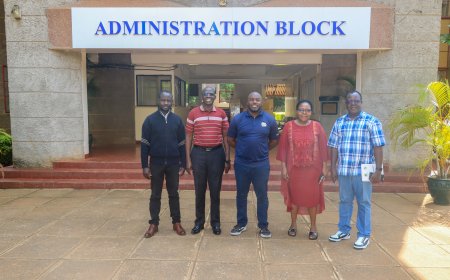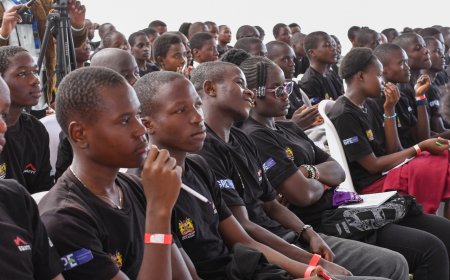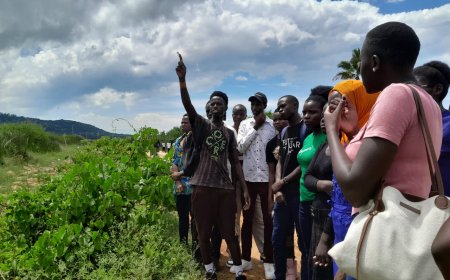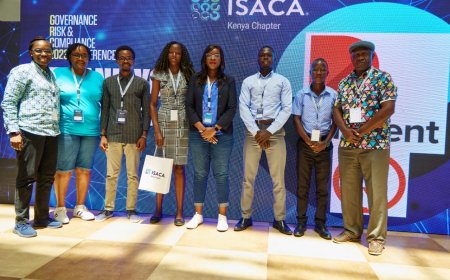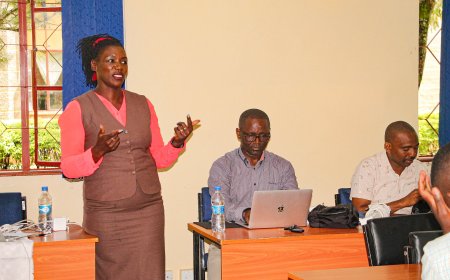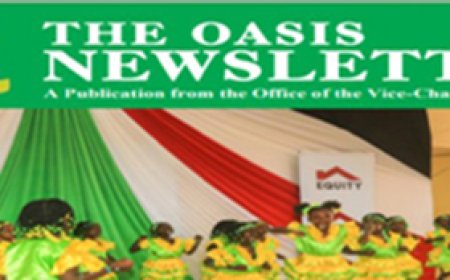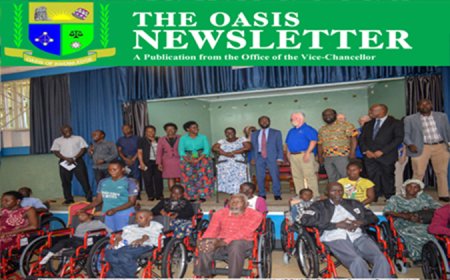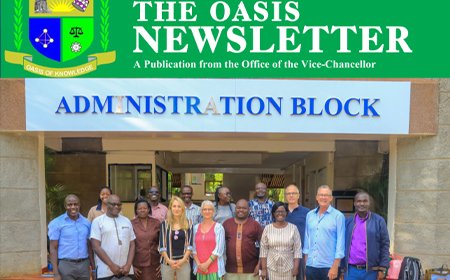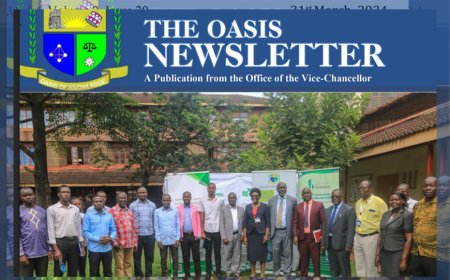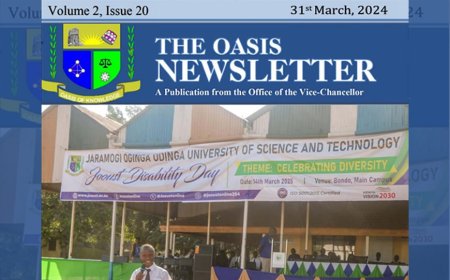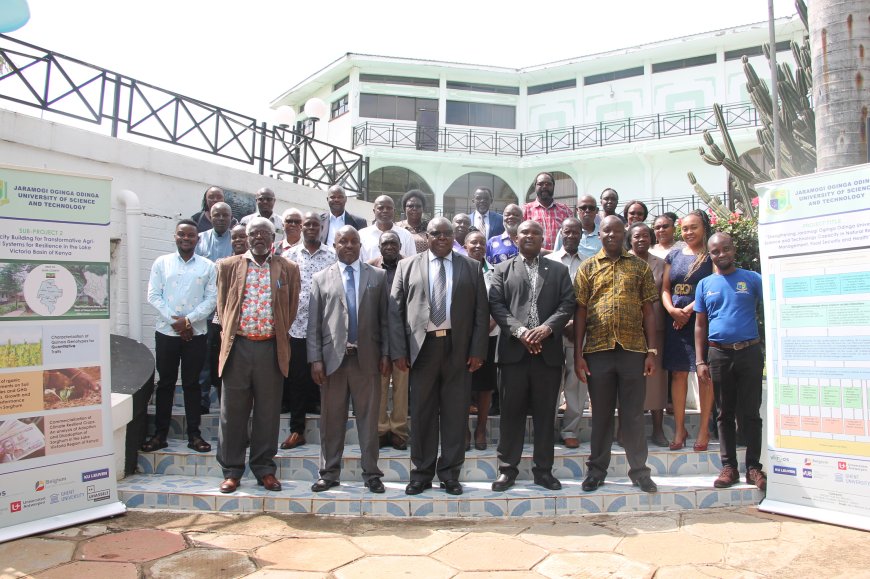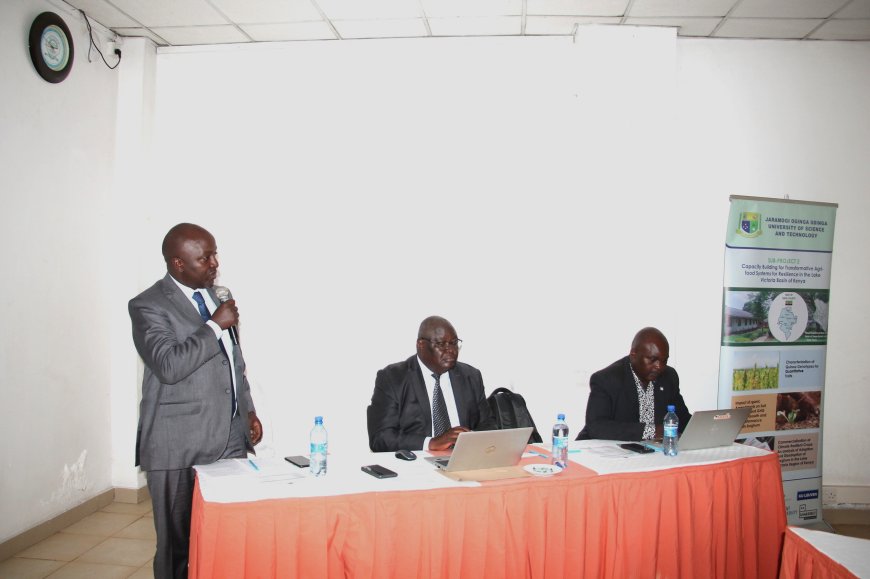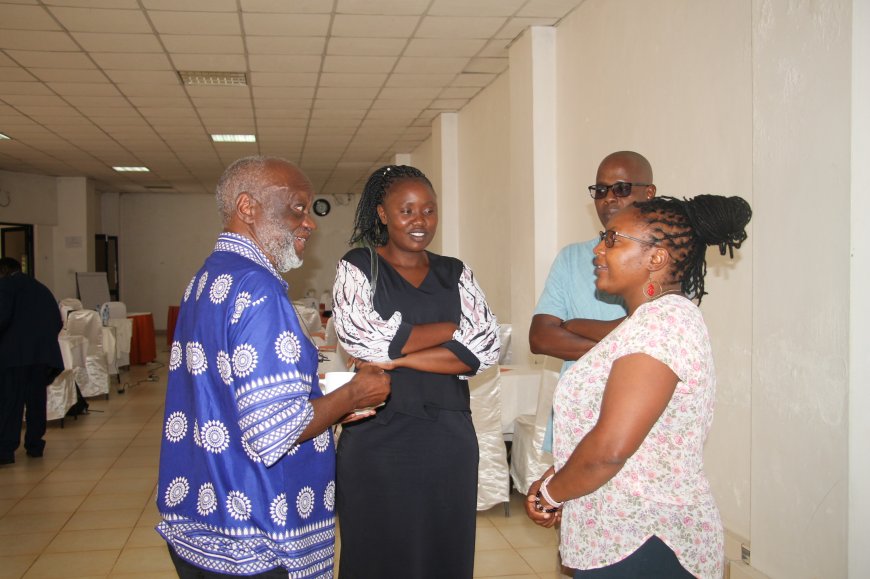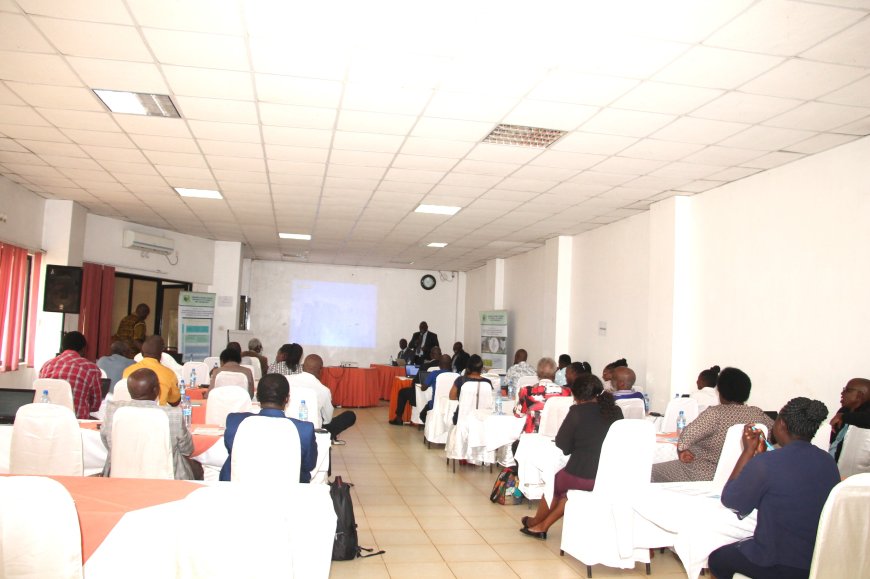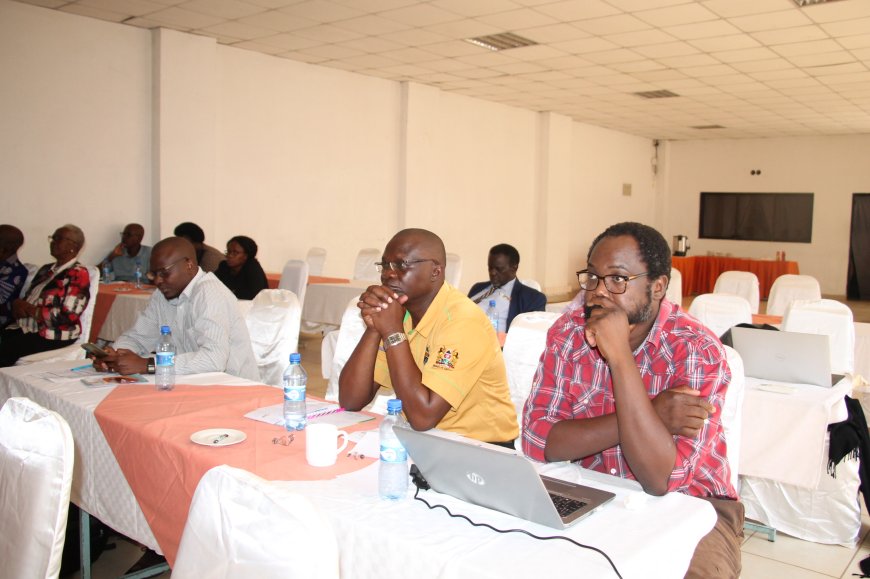VLIR-IUC Sub-Project Two kicks off
Jaramogi Oginga Odinga University of Science and Technology VLIR-IUC Project officially launched Sub-Project II titled Building Capacity for Transformative Agri-Food Systems for Resilience in the Lake Victoria Basin of Kenya on 31st July, 2023 at Kisumu Hotel.
The Ag. Vice Chancellor, Prof. Joseph Bosire, while giving his opening remarks during the function noted that there are lots of opportunities for theprogramme particularly with respect to its five thematic areas. “We have a wonderful opportunity to make impact”, he emphasized. Prof. Bosire added that the University is working closely with Kenya Innovation Agency, which is keen on on innovation and more so commercialization of innovative products. The aim of this collaboration is to encourage research projects in universities to have an innovative dimension with a potential of commercializing research concepts.
While noting that the field of Agriculture is diverse in application, Prof. Bosire encouraged the school to strengthen the study of soil science which, he said, forms the bedrock of agricultural practices. He also mentioned the University's interest on coming up with a department of veterinary science; a venture the University looks forward to embark on.
The Deputy Vice Chancellor, Planning, Administration and Finance Prof. Aggrey Thuo, posed a challenge to the team members to innovatively ensure that agrifood system produces both quality and quantity, with increased production to curb the drastic drop in acreage per family.
While revealing the sub-project’s roadmap, Dr. Caleb Olweny, who doubles as the sub-project team leader and Dean School of Agricultural and Food sciences affirmed that the food systems are under heavy attack due to climatic factors and other shocks adding that in Kenya alone, approximately fourteen million children under the age of five suffer from acute malnutrition. He further enumerated both the short and long term objectives of the programme. He posited that the mid-term objectives of the project that will be rolled out in the first five years include; developing and promoting climate resilient agri-food systems and strengthening collaborative learning, exchanging programmes and outreach activities. The long term objectives spanning ten years will be to promote gender sensitive resilient and diversified livelihoods and establish a dynamic and responsive breeding programme.
Speaking at the same function, the Director center for e-learning and project lead for sub-project 1, Prof. Abeka, emphasized on the role of ICT urging the project personnel to take advantang of the potential and emerging trends in technology such as the internet of things, big data technologies, Artificial Intelligence, remote and localized sensing. He also assured the sub-project team members that the ICT sub-project is ready to provide the support necessary.
Three members of staff have been identified for sponsorship to study in Belgium. They include; Kennedy Mutuku, a former valedictorian student, Dunston Aboge and Maureen Akinyi. The first 5 years envisions to have a total of 15 members of staff trained.
The sub-project has established linkage with The Kenya Medical Research Institute (KEMRI), Kenya Agriculture and Livestock Research Organization (KALRO) among others.
During the plenary session, invited participants gave their views on the the research topics presented by the students. The students were spurred to think on how to encourage a shift in the consumer perception in communities to embrace alternative food security incentives being tabled by sub-project 2 such as Quinoa.
It was noted that the impact of the Universities in the region needs to be felt. They ought to assess the needs of the neighbouring communities and intervene with sustainable solutions that will outlast the institutions. It was also emphasized that universities should engage more proactively in outreach activities to ensure their research outputs are shared widely with their respective neighbouring communities.
The stakeholders present also assured the sub-project team that they are ready to provide students with additional research material which they can work with from previous research. They also urged student to work closely with the County to ensure the research benefits are shared widely for greater impact.
The Sub-project team members were also urged to come up with ways of ensuring the farmer are best empowered in their practice. A representative of the invited farmers requested the sub-project team members to get in touch with them directly as the focal persons on the ground to establish the root causes of the challenges they are experiencing as farmers that is also affecting the production of the food.
